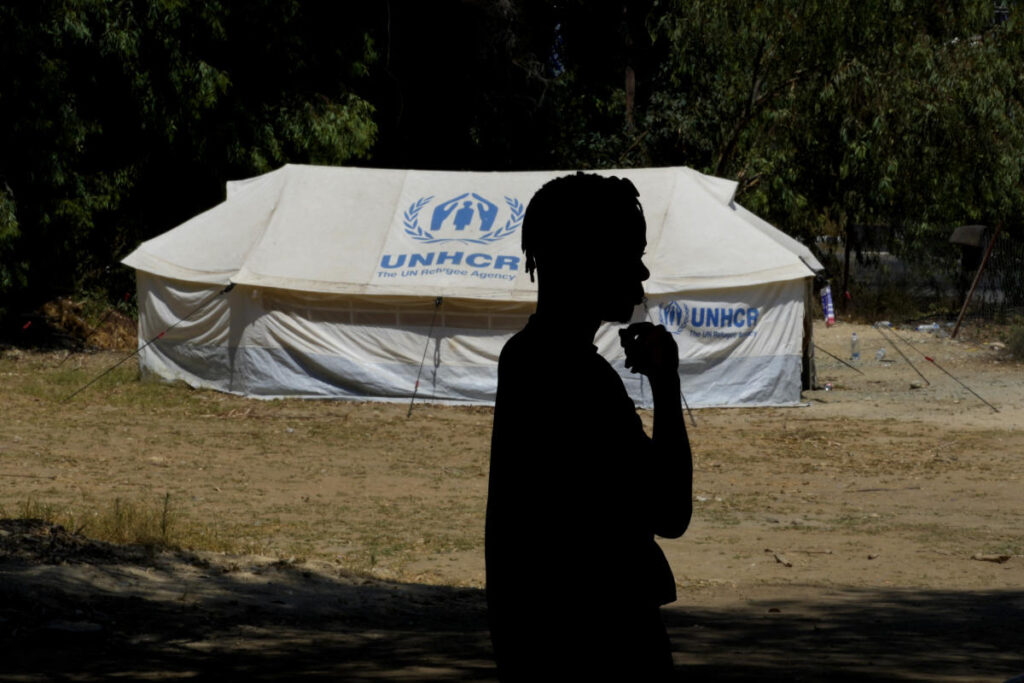In a recent letter, Michael O’Flaherty, the Council of Europe’s Commissioner for Human Rights, has expressed concern over the living conditions of nearly three dozen asylum seekers stranded in a U.N.-controlled buffer zone in Cyprus. These individuals, including young children, have been living in tents for months in dire circumstances despite receiving some aid, such as food and water. O’Flaherty highlighted that the lack of access to essential items, such as baby formula and diapers, severely affects their quality of life, mental wellbeing, and physical health, as illustrated by attempts at self-harm among some of the women. The asylum seekers hail from various countries, including Syria, Iran, Sudan, Afghanistan, and Cameroon, and their protracted stay in these inadequate conditions raises serious concerns regarding the international obligations of the Cypriot authorities.
The buffer zone separating the Turkish Cypriot north and the Greek Cypriot south has historically posed challenges for migration and asylum seekers. Following a Turkish invasion in 1974 triggered by a coup aimed at uniting Cyprus with Greece, the island became divided. The Republic of Cyprus has emphasized its commitment to controlling migration and has taken measures to prevent the buffer zone from becoming a conduit for illegal crossings. Following recent stringent measures, including enhanced surveillance and policing along the extensive buffer zone, there has been a notable decrease in migrant crossings from the north to the south. Cypriot officials maintain that while they recognize the complexity of migration issues, they also have a responsibility under international law to ensure that people seeking asylum can access appropriate procedures and reception conditions.
In his correspondence, O’Flaherty recognized the Cypriot government’s challenges regarding migration but insisted that these challenges should not impede the asylum seekers’ rights. He called upon Cypriot President Nikos Christodoulides to allow these individuals to proceed with their asylum applications, emphasizing the urgency of addressing their dire living conditions. Timing of the letter came after the U.N. refugee agency had made similar requests, underlining the pressing humanitarian dimension of the situation. The humanitarian crisis at the border is further exacerbated by Cyprus’s recent suspension of asylum application processes for Syrian nationals, a practice that has received criticism in light of the substantial number of refugees already granted protection in the past decade.
In his reply to O’Flaherty, President Christodoulides reinforced the government’s focus on combating people-smuggling networks and highlighted their responsibility to uphold national and international laws. He stated that all stranded migrants possess Turkish residency permits and arrived in northern Cyprus through scheduled flights, indicating a concern for the integrity of the island’s asylum system. The Cypriot government has reiterated its commitment to resolving the situation of the stranded asylum seekers. Christodoulides assured O’Flaherty of ongoing provision of basic supplies and healthcare for the individuals while expressing hope that the matter would be resolved swiftly, although he provided no specific timeline.
Moreover, the Cypriot president defended the practices of marine police in intercepting migrant boats attempting to reach the island. He underscored that these operations are conducted in accordance with international law and rejected suggestions that they involve illegal “pushbacks” of migrants at sea. Recent developments have raised further issues regarding human rights and asylum practices in Cyprus, particularly following a ruling from the European Court of Human Rights that held Cyprus responsible for denying two Syrian nationals their right to seek asylum after detaining them on a boat for extended periods before sending them back to Lebanon.
In light of these events, O’Flaherty urged for compliance with international law in all operations concerning the stranded asylum seekers and seaborne migrants. He called for independent investigations into any allegations of unlawful returns and mistreatment of migrants. This appeal underscores the tension between national security measures adopted by Cypriot authorities and their obligations under international law to protect the rights of individuals seeking asylum, highlighting complex issues facing the small island nation as it navigates its political, social, and legal responsibilities amid an evolving migration crisis. The situation in Cyprus presents a microcosm of broader challenges in Europe related to migration, asylum policies, and the treatment of vulnerable individuals, illustrating the urgent need for policies that respect human rights while addressing security concerns.

